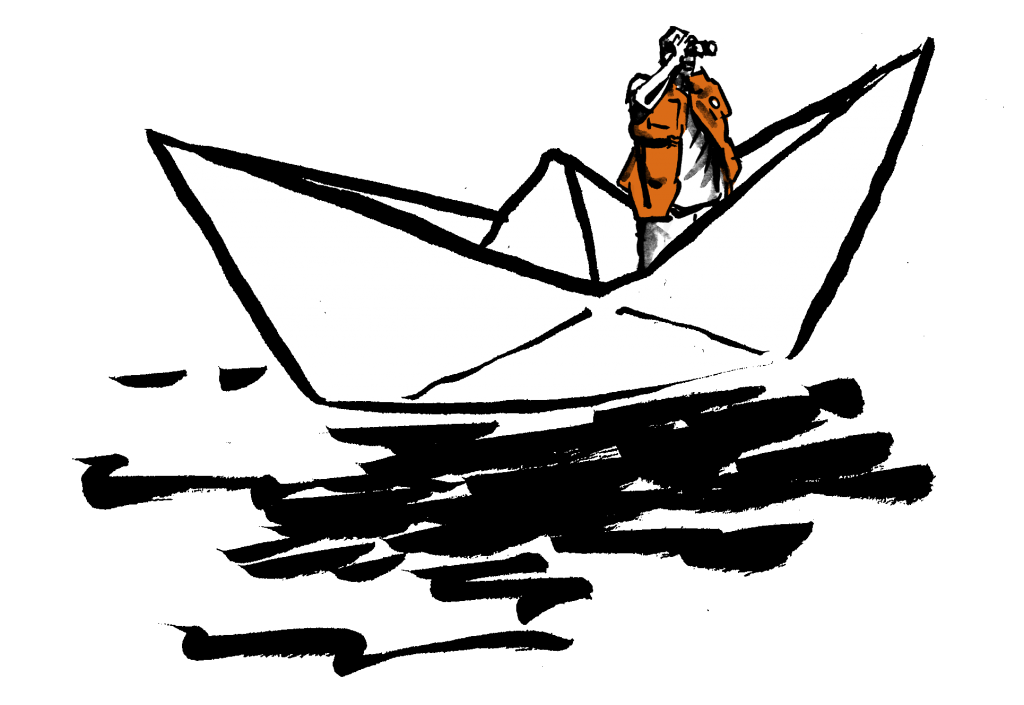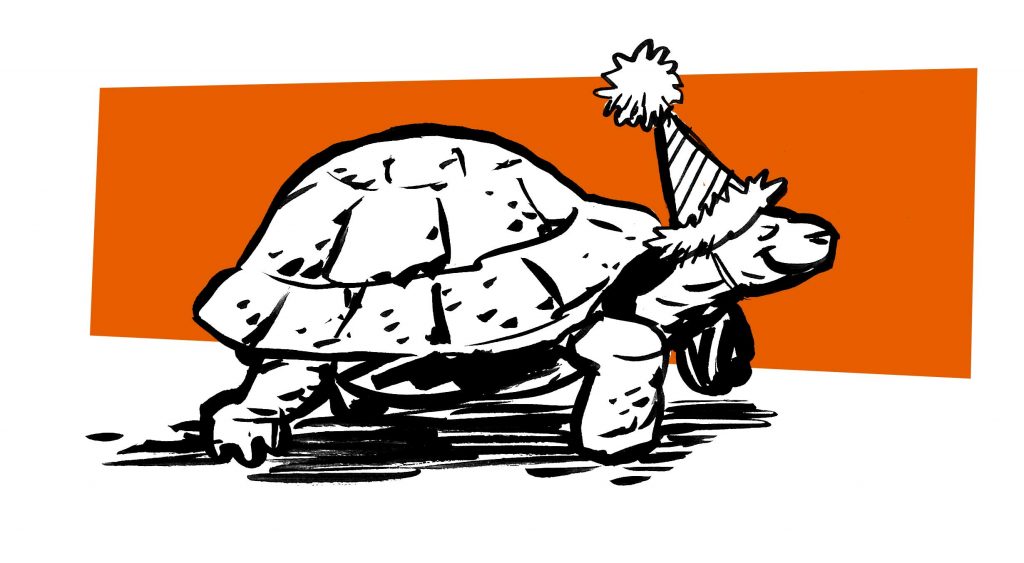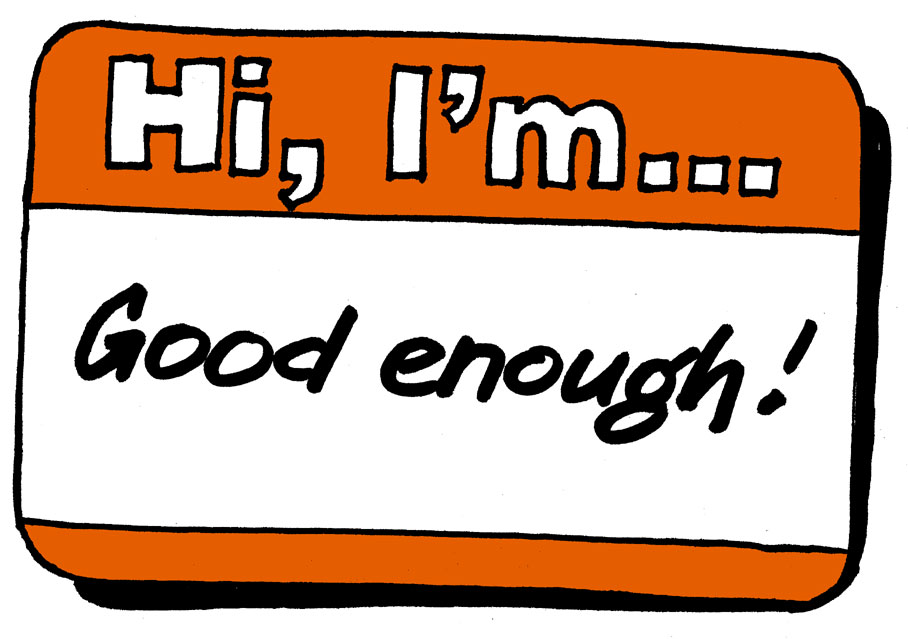Do you envy people who are more succesful than you? Then you’re like 99,9% of all creatives. But in this video I argue that you should wallow in your lack of success!
mindset
Video: Why Creatives Hear Voices
Your worst enemy as a creative… is yourself!
If you think you’re alone in feeling like a hack, a fraud and a talentless poser, think again. We all have an annoying voice in our head, telling us we suck! What to do?
Watch this video, that’s a start.
The Art of Being an Artist

Your first year or two as a creative freelancer the focus should be to build your boat and get in the water. When you’re afloat and not taking in water, you can start to think about your destination. Where would you like to go?
To many people, art is a hobby. But it’s when you really start to take it seriously and treat it as your job that you really pivot. William Faulkner is quoted of saying: “I only write when inspiration strikes. Fortunately it strikes at nine every morning.”
Showing up at your desk is when things start to happen. The more you show up, the more likely it is that you’ll create something of value. You have to put in the hours, consistently. Painting a couple of times a month won’t make you a great painter. You have to build momentum and consistency and daily routines is key.
You can have a somewhat mediocre talent and still have a great artistic career. Just as you can be insanely talented and still struggle making it work. It’s not about talent as much as it is about courage, persistence and resilience.
Keeping your ego in check is another important aspect. You need some ego to find the belief the song you wrote is so great that everybody needs to hear it. But that ego can just as easily trip you up, if you start to think people don’t appreciate your genius enough. Or you strive for perfection in your work, feeling like it’s never as good on the paper as it was in your head (hint: It isn’t. This feeling never goes away, believe me!).
As an artist you expose yourself a lot and have to be willing to take criticism. You have to push yourself, and not hold back out of fear of what people might say. You have to be okay with shipping something you’re not a hundred percent satisfied with – chances are you never will be.
In 2011 I sat for a few weeks at Dean Haspiel’s Hang Dai Studios in Brooklyn. One of the guys at the studio asked for Dean’s advice on whether to take on a particular storyboarding job. He was worried he would fall short and botch the job somehow. Dean replied: “You need the money? Then you take the job. And you fail. HARD. And you learn from that”. That attitude was truly inspiring; expecting to fail and being okay with it. I certainly learned a lot from my brief spell at Hang Dai but also from taking on tasks I wasn’t entirely ready for.
One of the things I hear tossed around a lot, is the idea that you’re only as good as your last work. I disagree. You are the sum of all your creative outputs, good or bad. And you’re not always the best judge of quality – in fact you’re likely the worst. You just have to do the best you can at that moment and get it out there. You don’t end up back at square one because some project didn’t turned out the way you wanted it. In fact you learn more from a project like that than you do from a smooth success.
When the process is grueling, frustrating and hard, it’s likely because you’re evolving and growing as an artist. When you reach that plateau and it feels like you’re never going to get better, when you feel like quitting – that’s exactly when you need to push through.
If you want to learn to swim, you have to go in the deep end of the pool.
This post is an excerpt from my book SOLO – Survival Guide for Creative Freelancers – Order now on Amazon.

Tiny Habits and Baby Steps
 Hey, it’s a new year! Maybe you made a resolution that has to do with your creative craft, like write the script for your graphic novel or draw a page a day. A big goal, something to strive for! That’s the way to go, right?
Hey, it’s a new year! Maybe you made a resolution that has to do with your creative craft, like write the script for your graphic novel or draw a page a day. A big goal, something to strive for! That’s the way to go, right?
Three Books All Creatives Should Read
In this video I give three book recommendations that might seem kind of left field. Nevertheless all three have had a huge impact on me and how I see myself as an artist – and as a human!
Here are direct affiliate links to all three books on Amazon:
The War of Art: Break Through the Blocks and Win Your Inner Creative Battles, by Steven Pressfield
The Dip: A Little Book That Teaches You When to Quit (and When to Stick), by Seth Godin
The Subtle Art of Not Giving a F*ck: A Counterintuitive Approach to Living a Good Life, by Mark Manson
Are You Good Enough for a Career in Comics?
We all look for approval, as people as well as artists. We want to be told we are great, that everything will work out for us. The truth is, no one can really give us that validation.
We might get lucky and meet some peers who can give us guidance, tell us where we need to improve or tell us not to worry so much. But we all worry. And I bet you we all ask the same question: Am I good enough? Do I have what it takes to make it as a comics artist?
No one can tell you for certain, if you have what it takes. A portfolio review only tells you if you have the basic talent for drawing. What goes on inside of you is far more important. Are you willing to put in the time and effort to get to the level you want? To confront your own shortcomings and tackle them head on? Are you prepared for the insecure lifestyle of a comic book artist? The solitude? The long hours? The lack of money and lack of respect from your friends and family?
Are you ready for critizism, fair and unfair? Can you muster up the guts to consistently put yourself out there and be judged? How do you handle taking notes and being told what to do? Do you freeze up when you have to perform under less-than-optimal circumstances? How well do you work under the pressure of a deadline? Do you get anything done if there’s NO deadline, or do you end up wasting your days playing World of Warcraft? Can you forgive yourself for producing less-than-perfect art? Do you endlessly beat yourself up if you’re not productive enough, good enough or succesful enough?
What does “making it” even mean for you?
Have you set a specific and measurable goal, and if not, how will you know if you get there? And have you set a time limit for when you want to have “made it”, knowing that it will probably take years longer than you expect?
And guess what – no one has ever “made it” in comics. Because you’re only as good as your last job. Because even the artist you admire the most judge their own success in a totally different way than you do. Because no matter how succesful you are, you still strive for more. There’s always room for improvement.
All this may sound like I’m trying to get you to give up, which is not at all true. The only thing I want you to give up, is asking the wrong questions. Whether you are good enough, time will tell. Time, effort, courage, persistance.
And you know when you are “making it”?
When you are making the most of the skills you have.
